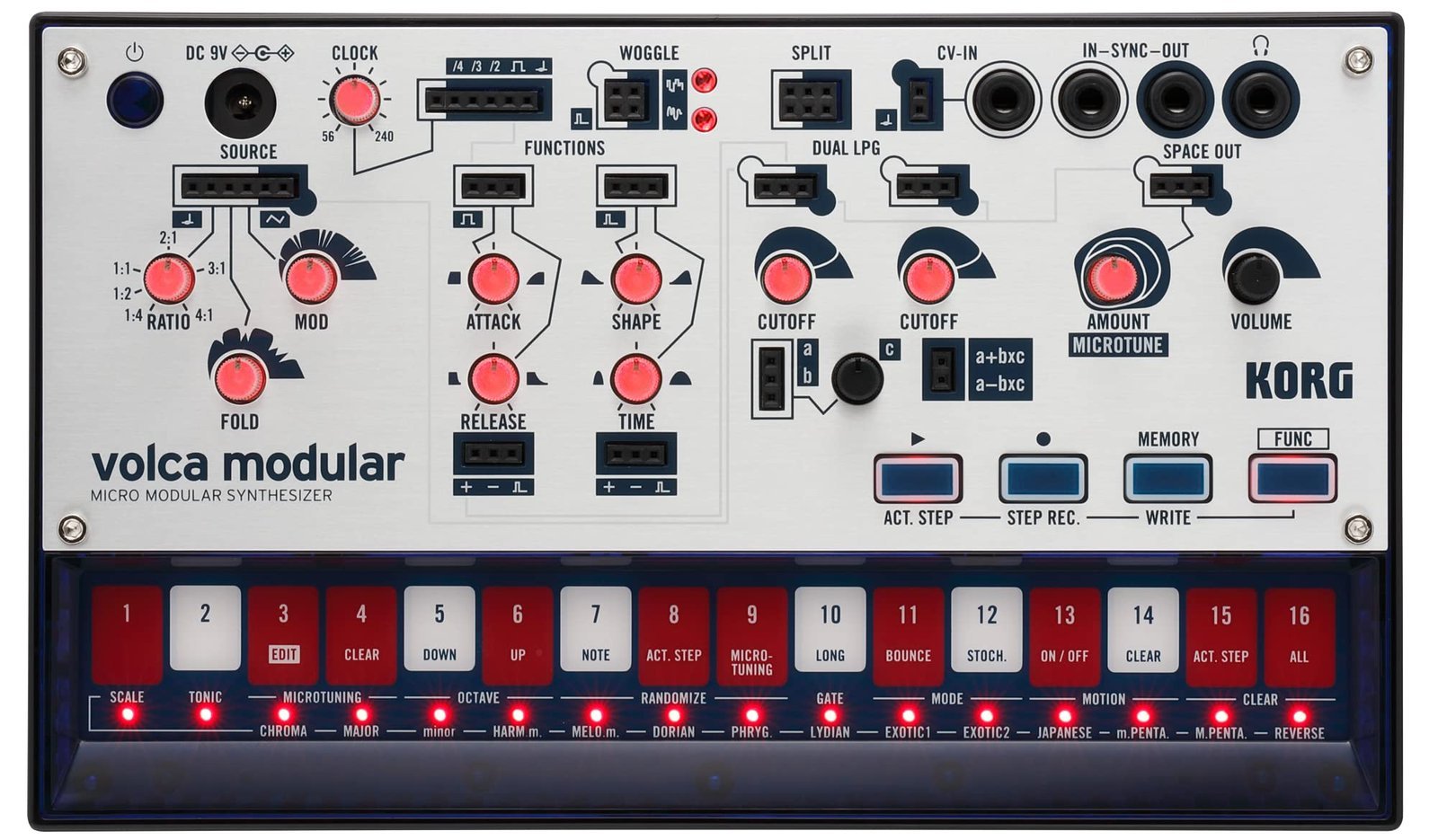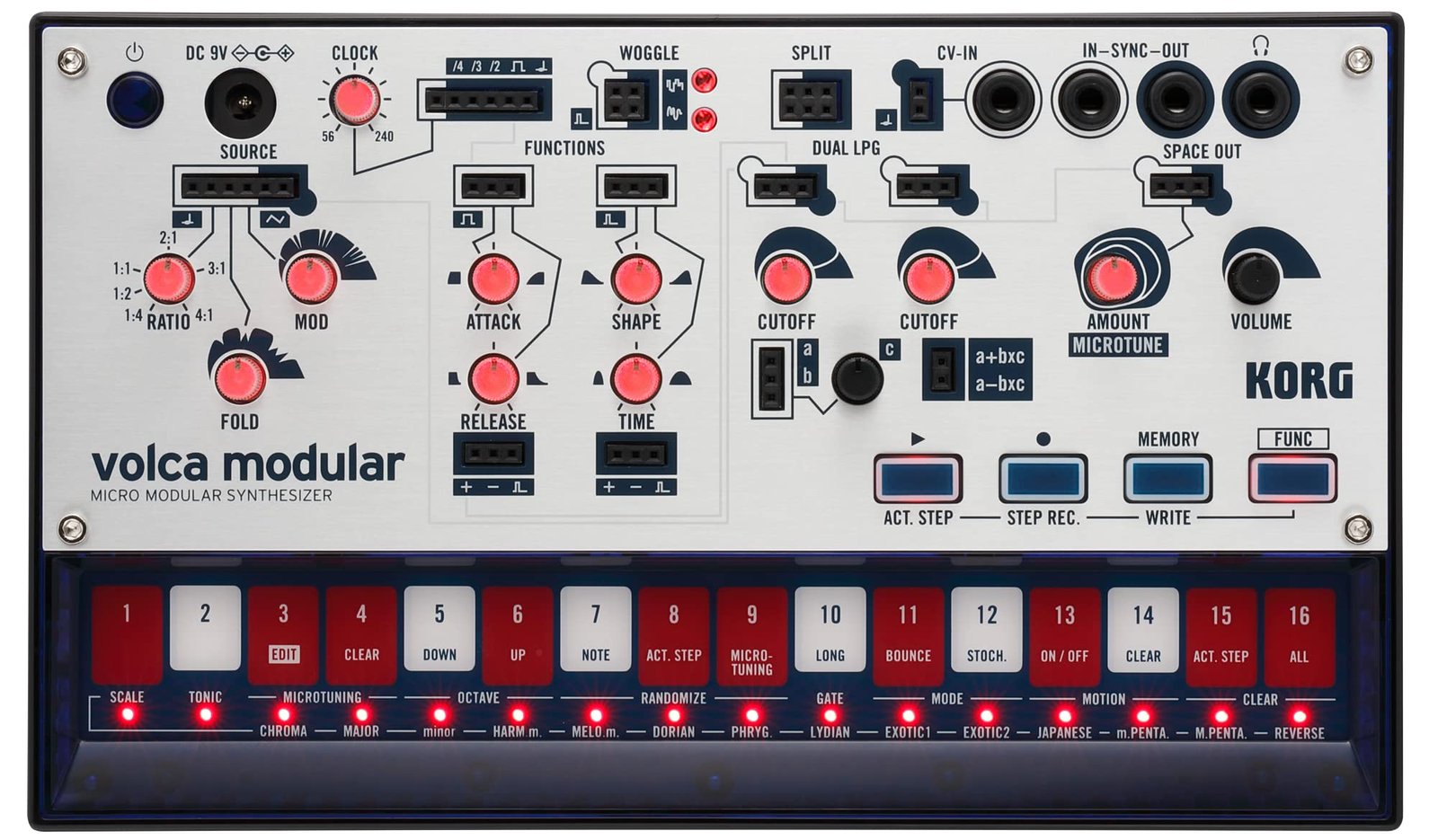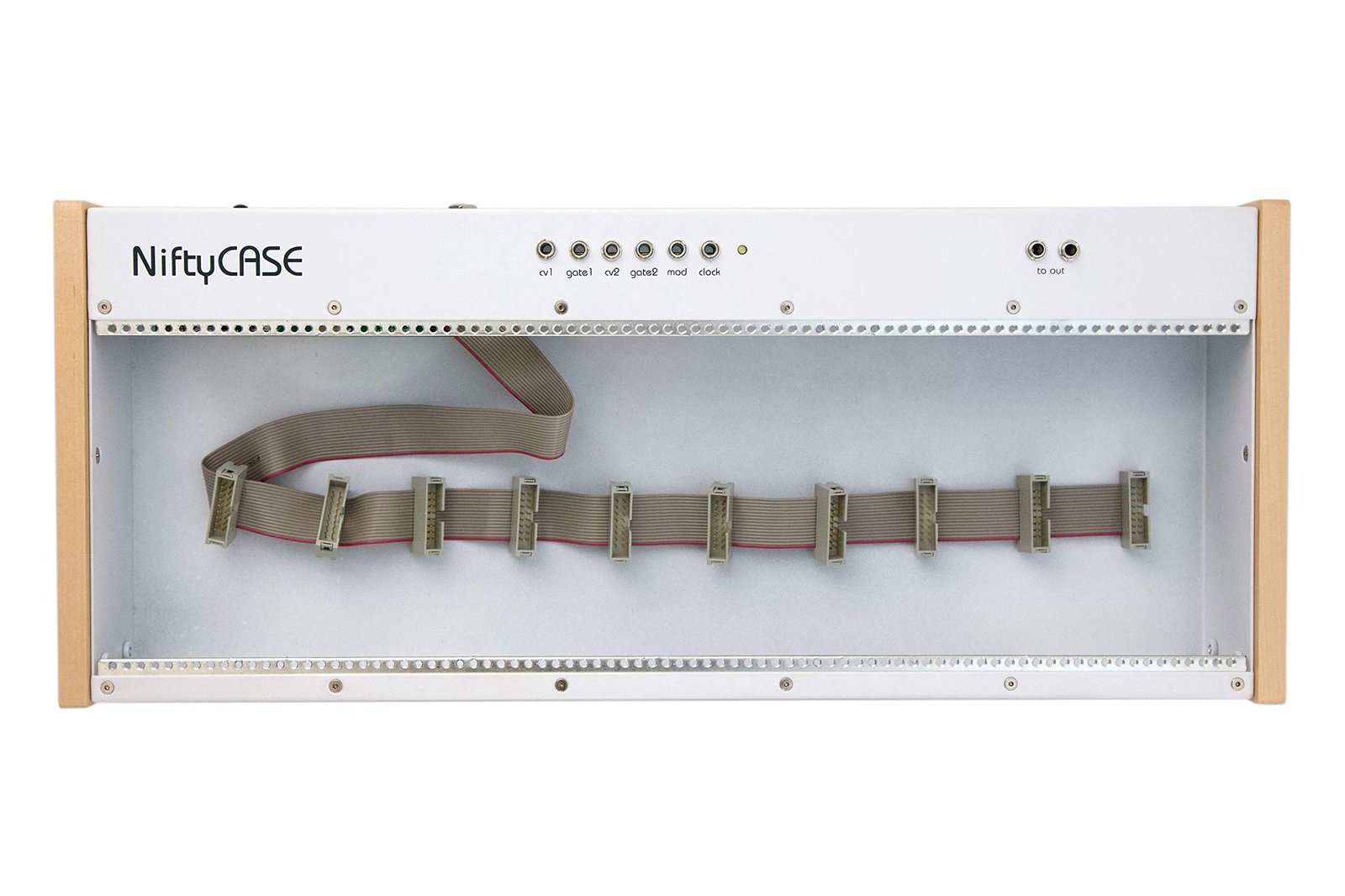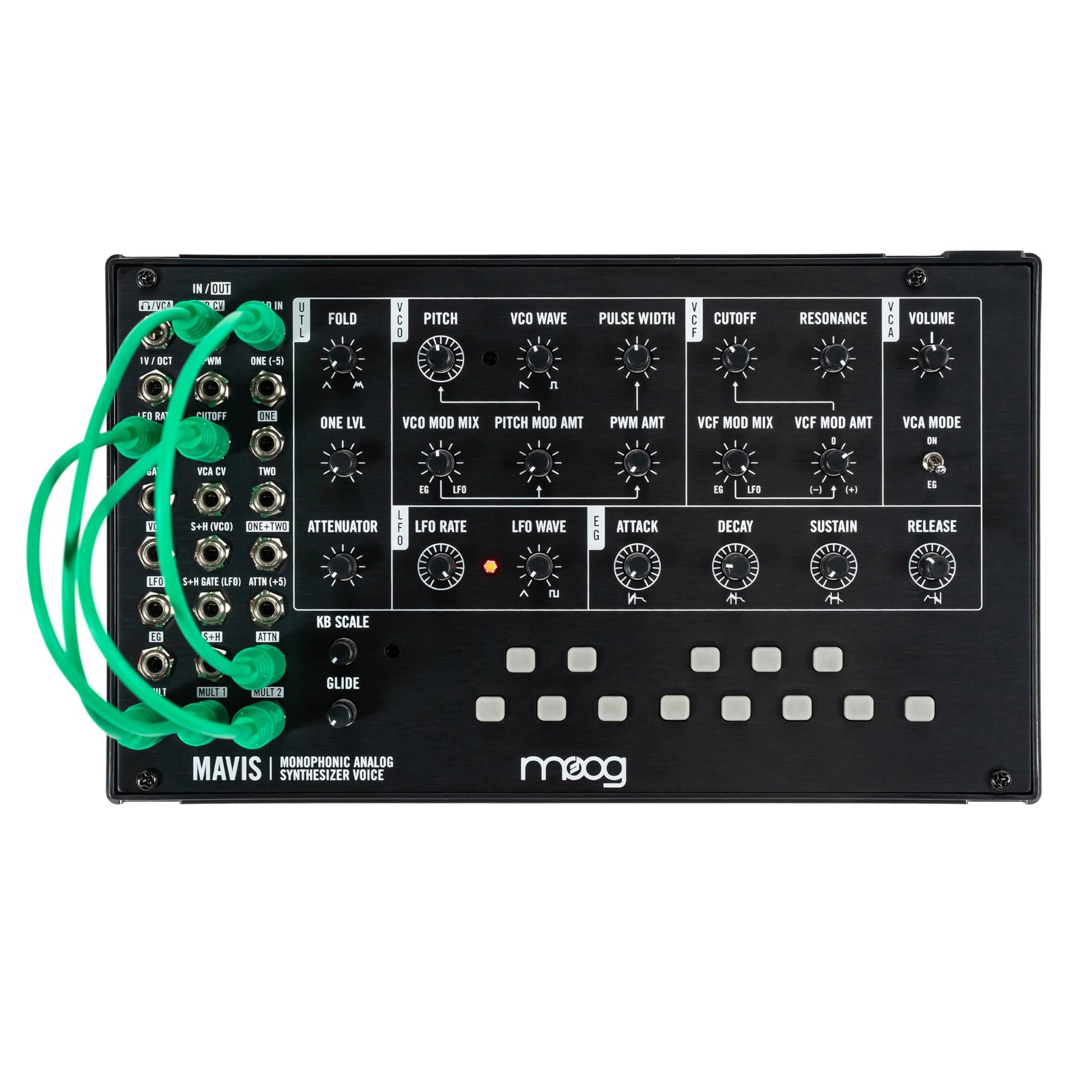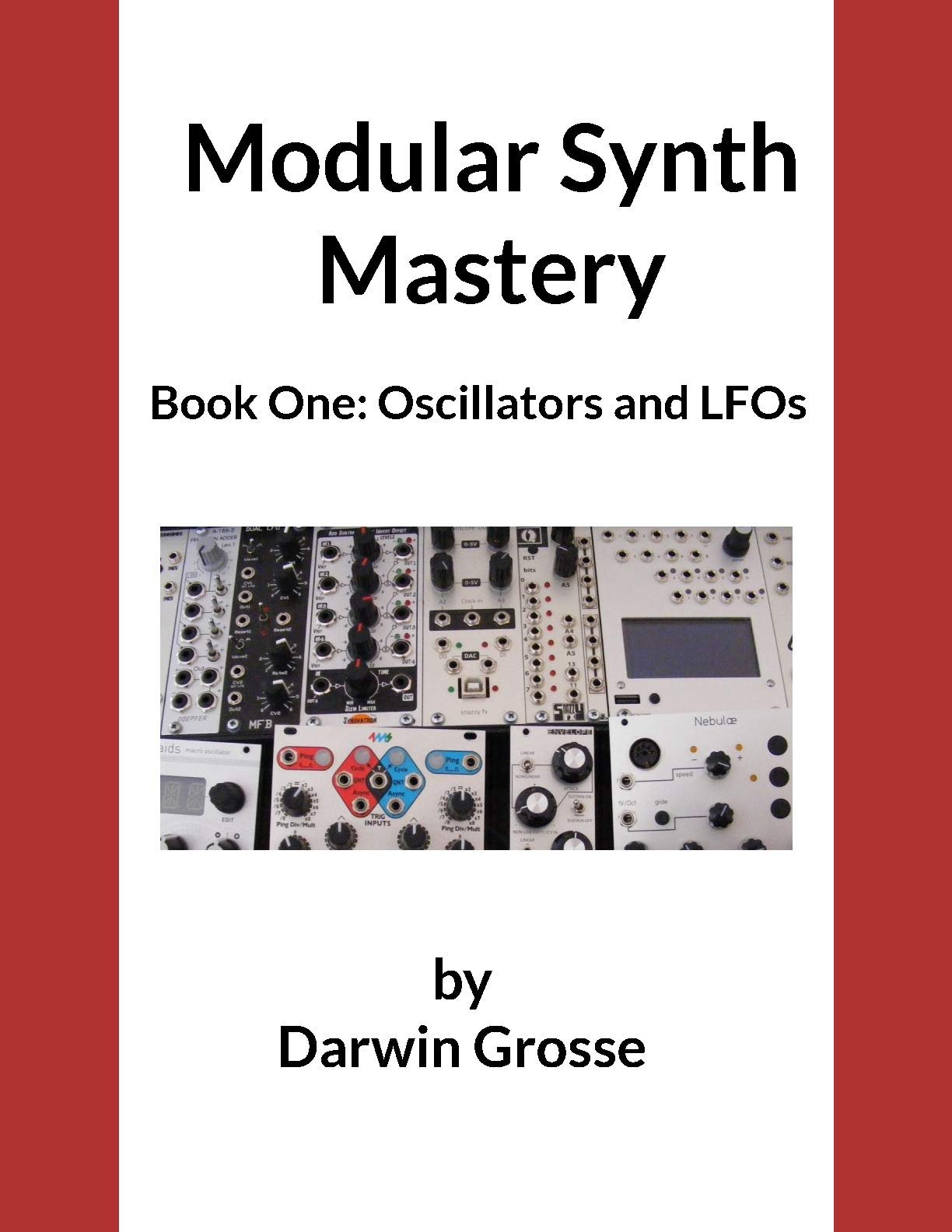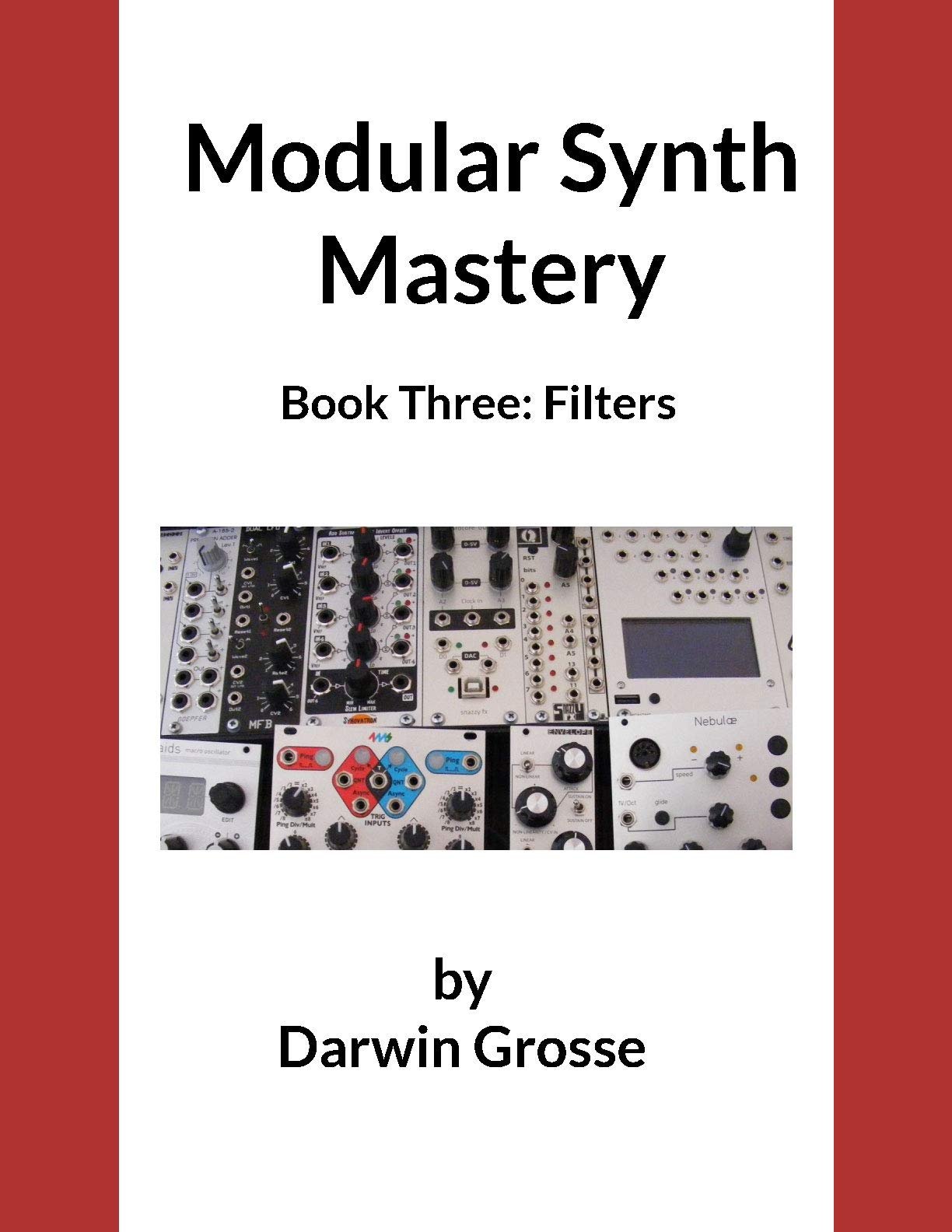Modular synthesizers captivate those who love creating unique sounds.
These instruments offer a hands-on approach to music-making.
You can build your own sound path by connecting different modules.
They consist of separate components that can be rearranged.
This gives you endless customization options as you experiment with various modules and configurations.
Unlike traditional synthesizers, modular ones don’t have a fixed structure.
This means you have total flexibility to make your music as complex or as simple as you desire.
When you’re considering diving into the world of modular synthesizers, a few key factors are important.
First, think about the size of your setup.
You’ll need to match the modules with your available space.
Power requirements can vary, so make sure your power supply can handle the modules you plan to use.
Ensure compatibility by checking that all the modules work well with each other.
This is especially important if you’re mixing brands or types.
Price can also be a significant factor since building even a small modular system can get expensive quickly.
Understanding these elements will guide you in making the best choice for your needs.
With these points in mind, you’ll be well-prepared to explore the world of modular synthesizers and decide which options are right for your creative journey.
Top Modular Synthesizers
Ready to dive into the world of modular synthesis? You’ll find a curated selection of the top modular synthesizers that deliver fantastic sound and creativity.
Check out the best products that can take your music production to the next level.
KORG Volca Semi-Modular Synthesizer
A smart buy for anyone looking to dive into the modular synthesizer world without breaking the bank.
- Highly portable with battery or mains power.
- Offers versatile sound creation due to multiple patch points.
- Affordable entry into modular synthesis.
- May feel limited for advanced users.
- Built-in speaker doesn’t capture full sound quality.
- Learning curve for beginners.
If you’re stepping into the world of modular synths, the KORG Volca Semi-Modular Synthesizer is a solid choice.
Its compact design means you can take your music-making everywhere, making it perfect for those spontaneous moments of creativity.
With numerous patch points and the familiar Volca sequencer interface, you’ll have a blast exploring different soundscapes.
Still, be ready for a bit of a learning curve if you’re just starting out.
Sound enthusiasts might find the internal speaker a little restricting, although the option to use headphones is a plus.
This synthesizer balances capabilities with simplicity, making it a versatile tool for both hobbyists and those considering a first step into modular synthesis.
Cre8audio NiftyCASE
If you’re after a modular case with great functionality and charming design, the Cre8audio NiftyCASE could be the right choice for you.
- Built-in MIDI to CV conversion simplifies connections.
- Compact and portable design.
- Provides ample power for most modules.
- Reports of power supply failures.
- Limited module space for larger setups.
- Potential issues with MIDI ports.
The NiftyCASE by Cre8audio is designed to enhance your modular synthesizer journey.
This case offers excellent connectivity options, transforming signals from your computer or any MIDI device into a modular language effortlessly.
With its compact size, it accommodates a portable setup that’s simple to carry around.
A major feature is its built-in MIDI to CV conversion, reducing the setup complexity.
Power needs are handled smoothly with plenty of it packed in, helping you run quite a few modules without trouble.
Yet, you should be cautious about some reports of the power supply going bad.
Additionally, there might be some limitations in module space if you’re looking to expand your setup significantly.
Despite these points, its versatility in a stylish package might make it worth considering.
MOOG Mavis Synth Kit
If you’re diving into modular synths or want to enrich your studio with Moog’s signature sound, the Mavis is a solid pick.
- Easily integrates with other equipment.
- Features Moog’s iconic sound quality.
- Compact and modular design allows for creativity.
- Limited sound options without additional modules.
- Assembly required, which might not suit everyone.
- Not ideal as a standalone synthesizer.
You’ll appreciate the Mavis for its versatility and that classic Moog vibe.
The ability to pop it out of its case and add it to your existing Eurorack setup makes it a versatile addition.
Its analog design combined with innovative wavefolding opens up new sound territories.
Its compact form, sporting Moog’s oscillator and filter along with a built-in keyboard, allows you to experiment with different pitches and intervals easily.
Despite its size, it packs plenty of features for sound design enthusiasts.
Assembly can be a fun project if you’re up for it, and with Moog’s guidance, you’ll have it set up in no time.
Just note that on its own, it might not fulfill all your musical needs, so think of it as a valuable piece of a larger puzzle.
Modular Synthesizer Mastery – Volume 1
If you’re serious about diving into the world of modular synthesis, this book offers a solid foundation.
- Well-structured guide ideal for beginners.
- Revitalizes ideas for experienced synthesists.
- Complements theoretical knowledge with practical applications.
- Limited to less than a hundred pages.
- Not compatible with certain e-readers.
- Price could be steep for the content offered.
If you’re passionate about modular synthesizers, this book can be a useful companion.
It introduces you to the basics, particularly focusing on oscillators and LFOs.
Whether you’re a newcomer or returning to the scene, you might find some valuable insights here.
The guide is structured to boost your understanding of the core concepts and might spark new ideas.
It aims to bridge the gap between theoretical knowledge and practical application, which some readers have found beneficial.
While it presents a clear pathway for learning, the limited pages and compatibility issues with certain devices might leave you wanting more.
Weigh the cost against content to decide if it’s the right choice for you.
Modular Synthesizer Mastery – Filters
If you’re curious about synthesizer filters and want to explore them in detail, this book could be an insightful addition to your collection.
- Clear explanations in simple language.
- Engaging demonstrations of filter uses.
- Exciting patches for hands-on practice.
- Information may be redundant if you’re already experienced.
- No interactive digital features.
- Specific to filters, might not suit all synth enthusiasts.
The book provides straightforward explanations, making it easier for you to dive into the complexities of synthesizer filters.
With accessible language, Darwin Grosse makes the content inviting, even if you’re not deeply versed in the technical aspects.
You’ll find engaging demonstrations that highlight the endless possibilities of using different filters.
This can spark your creativity and help you understand the practical applications of theory.
Even though the book focuses only on filters, it delivers a concise and detailed exploration that appeals to both newcomers and those with a bit of experience.
While lacking interactive elements, the included patches provide a practical ending to each chapter.
Buying Guide
When choosing a modular synthesizer, understanding your needs is crucial.
Think about what kind of sounds you want to create.
Are you looking for specific genres or styles? Having a clear idea of your goals can guide your choices.
Key Considerations
- Budget: Modular synthesizers can get pricey. Know your budget to avoid overspending. Start small and expand as needed.
- Space: Consider how much physical space you have. Rack units come in various sizes, so choose accordingly.
Essential Features
- Oscillators: Determine how many and what types you want. They shape the sound’s character.
- Filters: Look for versatile filters. They can alter the tonal quality of your sounds.
Expansion Options
- Modules: Plan for future expansions. Modular systems are perfect for gradual build-ups. Research compatible modules before buying.
| Feature | Importance |
|---|---|
| Oscillators | High |
| Filters | High |
| Space | Medium |
| Budget | High |
Practical Tips
- Community Support: Engage with online communities. They’re great for advice and troubleshooting.
- DIY Kits: Consider building your modules. It can be more affordable and rewarding.
Before purchasing, make sure to try out different modules if possible.
Hands-on experience is invaluable, and it helps you decide what’s best for you.
Frequently Asked Questions
Exploring modular synthesizers can raise a lot of questions, especially with the variety of components and the level of customization possible.
Let’s address some of these commonly asked questions to help you navigate your way.
What’s the difference between Eurorack modules and other modular synth components?
Eurorack is a popular format defined by specific size and connectivity standards.
It’s known for its wide range of available modules made by many manufacturers.
Other formats might have different standards or offer unique modules, leading to varying experiences depending on your choice.
How do you get started with a modular synth setup?
Starting with a modular synth involves choosing a case, power supply, and a few essential modules.
Research and planning are crucial.
Look into basic modules like an oscillator, filter, and sequencer.
Connect them via patch cables to begin creating sounds.
Why would you choose a modular synthesizer over a regular synth?
Modular synthesizers allow for more customization and flexibility than regular synthesizers.
You can tailor your setup to your specific needs and experiment with new sound possibilities.
This level of control can inspire creativity and provide unique audio results unlike fixed-path synths.
What’s a solid starter kit for someone new to modular synths?
For beginners, a starter kit might include a small case with a power supply and basic modules like a VCO (Voltage Controlled Oscillator), VCF (Voltage Controlled Filter), and a simple sequencer.
Some brands offer pre-configured kits that are perfect for those just starting out.
Can you use a MIDI controller with modular synthesizers?
Yes, you can use a MIDI controller with modular synthesizers.
You’ll need a MIDI-to-CV module, which converts MIDI signals to the control voltages that modular systems use.
This setup allows you to seamlessly integrate external MIDI gear into your modular workflow.
Is it tough to learn how to use modular synthesizers?
Learning how to use modular synths can be challenging but rewarding.
It requires an understanding of sound synthesis and signal flow.
Patience and experimentation are key.
Many online resources and communities are available to offer guidance and support as you learn.

